In 2015 the U.S. National Science Foundation (NSF) launched a new program called REvolutionizing engineering and computer science Departments (RED). The overarching goal of the RED program is to effect cultural and organizational change to address a wide array of enduring challenges in engineering education. RED projects are changing the landscape of engineering education in the U.S.
In 2016 Rowan University’s Civil and Environmental Engineering Department received a RED award to tackle the critical problem of diversity in engineering. This marked the beginning of the department’s journey to transform departmental culture to one of collective intentionality for inclusion and to build a sustainable model for diversity. This presentation will explore the project’s challenges and successes and will present our research-informed interventions in five key areas: recruitment and admissions, core curriculum, faculty programs and evaluation, student programs, and visibility of culture.
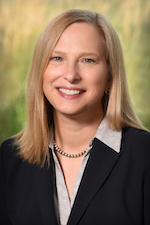 Dr. Stephanie Farrell is Professor and Founding Head of the Department of Experiential Engineering Education (ExEEd) at Rowan University. She joined Rowan as a founding faculty member of the Chemical Engineering Department in 1998, where she served until launching ExEEd in 2016. She served as Interim Dean of the College from 2019-2021. Stephanie is past president of the American Society for Engineering Education and is currently the President-Elect of the International Federation of Engineering Education Societies.
Dr. Stephanie Farrell is Professor and Founding Head of the Department of Experiential Engineering Education (ExEEd) at Rowan University. She joined Rowan as a founding faculty member of the Chemical Engineering Department in 1998, where she served until launching ExEEd in 2016. She served as Interim Dean of the College from 2019-2021. Stephanie is past president of the American Society for Engineering Education and is currently the President-Elect of the International Federation of Engineering Education Societies.
Stephanie leads Rowan’s Revolutionizing Engineering Diversity organizational change initiative for radical change within Civil and Environmental Engineering, funded through NSF’s Revolutionizing Engineering Departments (RED) Program. She is also PI on Rowan’s ADVANCE team for intersectional gender equity in STEM, and she leads ASEE’s national initiative to promote LGBTQ+ inclusion in engineering, funded by NSF.
The old ways of educating Engineers, and keeping them upskilled upon graduation, are being called outdated and are being disrupted. In many parts of the world, due to the pandemic, students have dropped out of universities because they don’t have the money or time to complete a degree. Disruptors, who provide stackable credentials, are creating certificate programs for corporations who need job-ready skills. Corporations are creating their own pre-hire talent pipeline through apprenticeship programs. The pandemic has changed the in-person, instructor-led lecture model for good, and new pedagogies have emerged in universities and in corporations to teach Engineers. Meanwhile, the 4th Industrial Revolution sprints along, continually changing the way Engineers will work in the future, through accelerating cloud-based technologies. New Engineering specialties are emerging as a result. How can universities and corporations partner synergistically to shape this new future together, by educating Engineers and developing and upskilling them continuously over time?
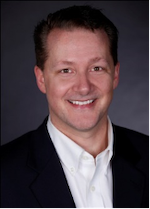 Michael A. Fors, Ph.D., is Executive Leader of Workforce Development for corporate divisions and business units at Boeing. His team works to digitally transform the Boeing business and develop the workforce systematically. This is vital as the 4th industrial revolution accelerates and reshapes the world of work with cloud technologies. Before Boeing, he was an Executive Leader at Microsoft, digitally transforming Microsoft divisions. Michael led a P&L comprised of 350 ex-CIO consultants, who digitally transform Microsoft customers. Michael also led a business strategy team working across Microsoft divisions. Before Microsoft, Michael was Chief Learning Officer of Intel University. Michael is an adjunct professor at Stanford University, Columbia University, and the University of Washington, teaching innovation, entrepreneurship, the Future of Work, and Leadership/Executive Development. Michael is a member of the World Economic Forum, the Global Engineering Deans’ Council, ReWork America, & the International Federation of Engineering Education Societies. Michael is Chairman of the Board for the United Nations Institute for Training and Research, leading United Nations programs for post conflict and developing nations.
Michael A. Fors, Ph.D., is Executive Leader of Workforce Development for corporate divisions and business units at Boeing. His team works to digitally transform the Boeing business and develop the workforce systematically. This is vital as the 4th industrial revolution accelerates and reshapes the world of work with cloud technologies. Before Boeing, he was an Executive Leader at Microsoft, digitally transforming Microsoft divisions. Michael led a P&L comprised of 350 ex-CIO consultants, who digitally transform Microsoft customers. Michael also led a business strategy team working across Microsoft divisions. Before Microsoft, Michael was Chief Learning Officer of Intel University. Michael is an adjunct professor at Stanford University, Columbia University, and the University of Washington, teaching innovation, entrepreneurship, the Future of Work, and Leadership/Executive Development. Michael is a member of the World Economic Forum, the Global Engineering Deans’ Council, ReWork America, & the International Federation of Engineering Education Societies. Michael is Chairman of the Board for the United Nations Institute for Training and Research, leading United Nations programs for post conflict and developing nations.
"Learning in the Age of Digital and Green Transition" will produce the green transition only if digital representations impact the real world. Enabling this impact requires digital skills to connect virtual universes with reality. New ecosystems emerge to produce the competences needed when “twinning” virtual models with real systems and experiences.
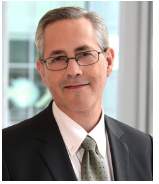 After graduation as industrial engineer at Ecole Centrale de Lille, Xavier Fouger started his career in 1986 as AttachÈ for Science and Technology at the French Embassy in Austria in charge of science and technology cooperation. With Dassault Systemes since 1990, he spent several years developing new digital processes to enhance collective innovation in the automotive industry. He worked as principal advisor to engineering leaders in various countries with a focus on Germany, Korea and Japan. In 2003, he created DSí Academy, the corporate organization supporting skills, producing educational innovation and encouraging transformative learning initiatives related to the use of the companyís software.
After graduation as industrial engineer at Ecole Centrale de Lille, Xavier Fouger started his career in 1986 as AttachÈ for Science and Technology at the French Embassy in Austria in charge of science and technology cooperation. With Dassault Systemes since 1990, he spent several years developing new digital processes to enhance collective innovation in the automotive industry. He worked as principal advisor to engineering leaders in various countries with a focus on Germany, Korea and Japan. In 2003, he created DSí Academy, the corporate organization supporting skills, producing educational innovation and encouraging transformative learning initiatives related to the use of the companyís software.
In higher education, his focus is on facilitating multidisciplinary learning, industry cooperation and international activities. Working with policy makers, he has developed educational programs at country scale, in support of national priorities, particularly in Tunisia and the United Arab Emirates. A founding member of the International Federation of Engineering Education Societies, vice-president of the European Society for Engineering Education, Xavier Fouger was instrumental in the creation of the Global Engineering Deans Council. His international work also includes the promotion of Grand Challenges for Engineering in the global studentís community.
He is managing corporate research on virtual labs, teaching co-creation in product innovation, crowd-based curriculum creation, realistic use of 3D in MOOCs, ìflipped labî and virtualization of textbooks and learning devices. He leads the companyís participation with universities involved in educational research projects supported by national and international funding agencies.
With the rapid adoption and implementation of digital engineering techniques and the desire to positively impact the world by aiming to achieve the UN Sustainable Development Goals, what are the implications for Engineering Education? In this session, Paul Gilbert, CEO of Quanser, will share some of his thoughts regarding possible approaches to enhancing education programs to help facilitate the success of future generations of graduates. He has spent over 20 years focused on supporting the global academic community, and he is passionate about using modern technology to enable students and researchers to bring theory to life through robust and rigorous hands-on experiences.
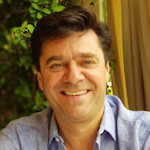 Paul Gilbert has been the CEO of Quanser since 2002. He oversees the strategic development of modern engineering education and research solutions for the global academic community. Paul regularly travels the world delivering keynote presentations and meeting with senior engineering educators. Paul holds an MBA from the Richard Ivey School of Business, in Canada as well as a Bachelor of Mechanical Engineering from the University of Southampton, U.K.
Paul Gilbert has been the CEO of Quanser since 2002. He oversees the strategic development of modern engineering education and research solutions for the global academic community. Paul regularly travels the world delivering keynote presentations and meeting with senior engineering educators. Paul holds an MBA from the Richard Ivey School of Business, in Canada as well as a Bachelor of Mechanical Engineering from the University of Southampton, U.K.
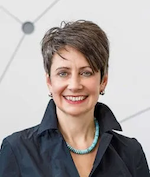
The pool of knowledge of humankind doubles each nine years while the ability of people to absorb new knowledge increases at a much lower pace. As a consequence, the chain from cutting edge knowledge to engineering for the benefit of society gradually becomes longer. This process puts ever increasing pressure on both teachers and students. They jointly face a new challenge: the extraction of wisdom and experience from top level science and converting it to benefit society.
This is more than simply a communication challenge. The ability to extract the best guidance from the knowledge that is accumulated in scientific landscape is gradually becoming the main pillar of competitiveness of countries, regions, and continents. This perception suggests that the importance of rapid and efficient use of knowledge for the common benefit is massively growing. The core requirement in this process is the conversion of knowledge into the basis of both strategic and everyday decision-making.
I will give a selection of examples following one of the great ideas of Peter Drucker: Knowledge is the source of wealth. Applied to tasks we already know, it becomes productivity. Applied to tasks that are new it becomes innovation. Only this way, combining teaching, engineering, and communication, can we achieve Green Transition and secure a future that is worth living.
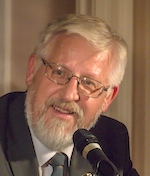 Tarmo Soomere is mathematician and marine scientist, PhD in oceanology 1984, Doctor of Mathematics 1992, Professor of Coastal Engineering at Tallinn University of Technology 2005. Since 2007 he is elected member and since 2014 the President of the Estonian Academy of Sciences. In this capacity, he is de facto acting as Chief Science Advisor in the country.
Tarmo Soomere is mathematician and marine scientist, PhD in oceanology 1984, Doctor of Mathematics 1992, Professor of Coastal Engineering at Tallinn University of Technology 2005. Since 2007 he is elected member and since 2014 the President of the Estonian Academy of Sciences. In this capacity, he is de facto acting as Chief Science Advisor in the country.
His scientific interests are concentrated to the analysis of wave climate, wave-driven coastal processes, mitigation of marine hazards, and preventive methods of coastal protection. He has published >200 research papers and dozens of science policy essays.
He has received twice the national science award and state decoration of 3rd class White Star order for developing coastal science in Estonia. International recognitions include membership of Academia Europaea, foreign membership of Latvian Academy of Sciences and Lithuanian Academy of Sciences, and honorary doctorate by Klaipeda University. Several highly unusual distinctions for a scientist came from society: he was declared the Person of the Year in Estonia 2005 by daily newspaper The Postman for his contribution to the forecast of a devastating storm and received The Friend of Press 2017 award by the Estonian Society of Newspapers.
Currently he is the member of the Prime Minister’s Research and Development Council in Estonia, representative of Estonia in European Marine Board, chairman of the European Science Advisors’ Forum (ESAF), and chairman of the International Science Council (ISC) European Members.
Rapid advances in quantum technologies have exacerbated the shortage of the quantum workforce. To this end, both governments and industry are developing strategies for the education and development of talent in the commercialization of quantum technologies worldwide.
In this talk, I will provide an overview of the current quantum ecosystem, education resources and initiatives, and some ideas on how to get involved.
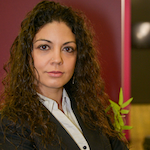 Dr. Araceli Venegas-Gomez spent several years working for Airbus in Germany and France as an aerospace engineer, before falling in love with quantum mechanics. She then decided to follow her passion for physics, and moved to Scotland to pursue a PhD in quantum simulation at the University of Strathclyde. Following discussions with the different quantum stakeholders she had over the last years, Araceli identified the need to bridge the gap between businesses and academia, as well as to raise the quantum awareness to the general public. Continuing her work on outreach advocating quantum technologies, she was named the “quantum ambassador”, after winning the Optical Society Milton and Rosalind Chang Pivoting fellowship in 2019. Araceli founded her own company called QURECA (Quantum Resources and Careers) to create a link between the different stakeholders in the quantum community through a common language, and to generate global opportunities with quantum technologies. QURECA provides a range of professional services, business development, and the solution to the quantum workforce skills bottleneck: the first online platform for quantum training and resourcing, to support individuals and businesses to be part of the quantum revolution.
Dr. Araceli Venegas-Gomez spent several years working for Airbus in Germany and France as an aerospace engineer, before falling in love with quantum mechanics. She then decided to follow her passion for physics, and moved to Scotland to pursue a PhD in quantum simulation at the University of Strathclyde. Following discussions with the different quantum stakeholders she had over the last years, Araceli identified the need to bridge the gap between businesses and academia, as well as to raise the quantum awareness to the general public. Continuing her work on outreach advocating quantum technologies, she was named the “quantum ambassador”, after winning the Optical Society Milton and Rosalind Chang Pivoting fellowship in 2019. Araceli founded her own company called QURECA (Quantum Resources and Careers) to create a link between the different stakeholders in the quantum community through a common language, and to generate global opportunities with quantum technologies. QURECA provides a range of professional services, business development, and the solution to the quantum workforce skills bottleneck: the first online platform for quantum training and resourcing, to support individuals and businesses to be part of the quantum revolution.
This seminar will focus the approach ABET uses for accrediting STEM academic programs. Topics include the philosophy, principles, and tools for the accreditation process as well as the use of assessment methods for demonstrating compliance with criteria. In addition, we’ll discuss the important role “peer” evaluators play in reviewing programs, as well as a summary of our Program Evaluator Candidate (PEVC) training.
ABET currently accredits over 4,100 individual academic programs in 32 countries around the world in the applied and natural sciences, computing, engineering, and engineering technology.
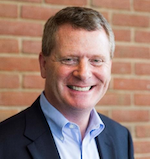 Michael K. J. Milligan is the Executive Director and Chief Executive Officer of ABET, the global accreditor of over 4,300 college and university programs in applied and natural science, computing, engineering and engineering technology.
Michael K. J. Milligan is the Executive Director and Chief Executive Officer of ABET, the global accreditor of over 4,300 college and university programs in applied and natural science, computing, engineering and engineering technology.
Milligan earned his Ph.D. from the University of Texas at Austin, his M.S.E. from the University of Massachusetts at Lowell, and his B.S. from Michigan State University — all in electrical engineering. He also earned an M.B.A. in Business Administration from Western New England College, is a registered Professional Engineer (PE) in Colorado and Maryland, and a Certified Association Executive (CAE).
The workshop is to introduce Peace Engineering to a broader audience and grow the Peace Engineering Consortium, a collective tasked with developing and disseminating knowledge, tools, and talent to influence peace efforts globally.
Peace Engineering is the application of STEAM principles, sustainable practices, cultural sensitivity, and innovation to promote and support peace. It recognizes the important contribution that engineering, the hard and social sciences, and other disciplines such as law and finance make toward a world where prosperity, sustainability, security, transparency and a culture of equity and quality thrive.
 Dr. Ramiro Jordan is a scientist, innovator, educator and entrepreneur. He is a faculty member of the Electrical and Computer Engineering (ECE) department at the University of New Mexico, and is currently the Associate Dean of Engineering for International Programs. His research activities include sustainability, Smart Grid, cognitive radio, multi-dimensional signal processing, and software development. Dr. Jordan is a founder of the Ibero-American Science and Technology Education Consortium (ISTEC), a successful non-profit organization that was created in 1990 with the mission to accelerate STEM education, R&D and entrepreneurship in Latin America and the Iberian Peninsula. ISTEC is comprised of over 100 educational, research, industrial, and multilateral organizations throughout the Americas and Iberia, and is now reaching into the global arena.
Dr. Ramiro Jordan is a scientist, innovator, educator and entrepreneur. He is a faculty member of the Electrical and Computer Engineering (ECE) department at the University of New Mexico, and is currently the Associate Dean of Engineering for International Programs. His research activities include sustainability, Smart Grid, cognitive radio, multi-dimensional signal processing, and software development. Dr. Jordan is a founder of the Ibero-American Science and Technology Education Consortium (ISTEC), a successful non-profit organization that was created in 1990 with the mission to accelerate STEM education, R&D and entrepreneurship in Latin America and the Iberian Peninsula. ISTEC is comprised of over 100 educational, research, industrial, and multilateral organizations throughout the Americas and Iberia, and is now reaching into the global arena.
Creating opportunities for Engineering students to have engaging and motivational hands-on experiences that allow them to gain the skills they need to succeed in their future careers is an essential part of modern pedagogy. In an ideal world, students would have equal and unlimited access to rich hardware platforms with the versatility and reliability to provide a common platform for multi-year, multi-disciplinary scaffolded course outcomes. However, that ideal is seldom practical, especially for large class sizes. Luckily the advent of high-fidelity digital twinning and remote access has created a wide variety of opportunities to introduce practical hands-on engineering experiences into more courses than ever before. But how!? Join Peter Martin, Director of R&D at Quanser, for an engaging workshop on strategies to leverage simulation, digital twinning, and remote access to expand practical experiences for engineering students.

| 04 Apr 2022 | Submission of Special Session Proposals |
| 11 Apr 2022 | Submission of structured abstracts (for full papers and short papers) for the main conference |
| 25 Apr 2022 | - Notification of acceptance for abstracts for the main conference - Special sessions notification and announcement |
| 06 Jun 2022 | Submission of complete papers, special session papers, Work in Progress, Posters, Workshops/Tutorials |
| 20 Jun 2022 | Notification of Acceptance |
| 11 Jul 2022 | Camera-ready due and Author registration deadline |
| 28 Sep 2022 | Conference Opening |